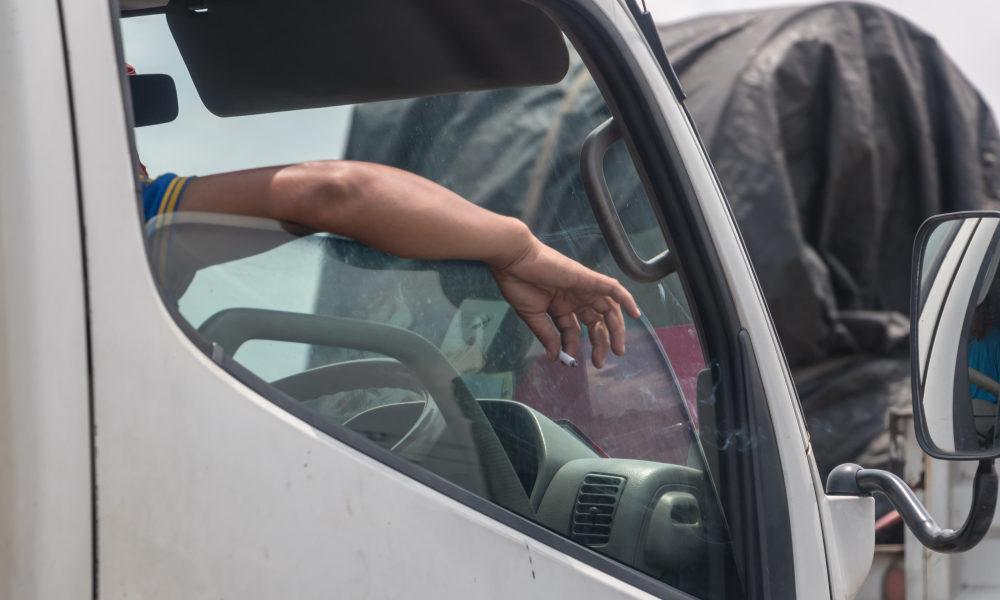It’s no secret the country’s going green—with 21 states (and Washington, D.C.) now fully legalized for recreational use. Naturally, everyone’s looking for their toke. But how does this concern those whose employment requires them to cross state lines?
Perhaps there’s no better example than people holding a commercial driver’s license (CDL). And in the last month, their cannabis freedom has come into question.
Darryl Hurtt is a medical marijuana user and obtained cannabis in his home state of Missouri. However, during a September 2021 stop (for weight violation), law enforcement became keen on the smell of marijuana.
When questioned, Hurtt revealed what was practically a roach alongside three additional blunts. He claimed he only possessed how much was legally prescribed to him through Missouri.
As court proceedings followed, Hurtt made efforts to dismiss the charges—claiming his “medicinal prescription requires him to bring his medication with him due to circumstances of his profession and not being home every night.”
To further this, he purported that his “right to freely travel, if unable to carry his medicinal marijuana through other states, would be violated.”
Some may argue that Hurtt can always opt for another occupation. But as his attorneys stated:
“The burden placed upon [Hurtt] is to either choose a different occupation and potentially be out of a job or to choose not to partake in medicine that was prescribed to him by a medical doctor. [Hurtt] should [not] have to decide which is more important to him. He wishes to have both of those privileges when he is simply driving through a state, which is his constitutional right.”
So, What Does Hurtt’s Case Mean for CDL Holders?
Hurtt was convicted in Iowa, which has allowed for medical cannabis since December 2018. However, medical laws between Iowa and Missouri differ greatly. And currently, Iowa does not allow medical marijuana to be smoked, as Hurtt was doing.
Iowa did eventually drop Hurtt’s charges—coming out with the statement that “[Hurtt] did not possess any of these four products” and, therefore, did not break state regulations.
Still, this conclusion did not stop conversations concerning medical (or recreational) marijuana crossing over state lines. As of now, it’s illegal to bring cannabis from one state to another – even if both states are legalized (i.e. from California to Oregon). The simple reason for this is marijuana remains a federally illicit Schedule I substance.
In turn, this has further questions concerning those who must travel for their occupation – namely, CDL holders. The Federal Motor Carriers Safety Administration currently states, “a person is not physically qualified to drive a commercial motor vehicle if he or she uses any Schedule I controlled substance.”
Such strict regulations likely come down to what defines a Schedule I substance, “a drug with no currently accepted medical use and a high potential for abuse.”
To continue using this definition alongside marijuana is simply absurd. Especially considering 37 states have now legalized cannabis for medical use.
Still, the OOIDA’s Consortium Management Co. Inc. (the Federal Motor Carriers Safety Administration’s association for drug and alcohol consortium) remains firm in its stance. With FaLisa McCannon, supervisor of CMCI, came out with the statement:
“If you hold a CDL and you’re driving a DOT truck anywhere in the United States, it’s still not acceptable to partake in marijuana, regardless of what your state has in place.”
In turn, if CDL holders do test positive for cannabis (regardless of whether or not they hold a medical card), they can face consequences.

